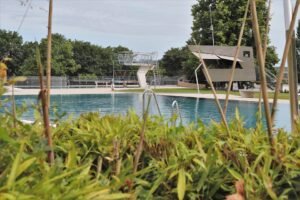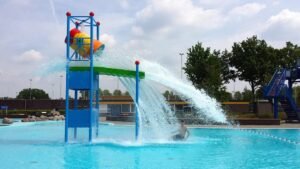Essential Tips for Maintaining Your Pool Heater: Avoid Costly Repairs!
If you’re a homeowner or a business owner in Dubai, you understand the luxury and comfort that a well-operated pool heater brings to your outdoor oasis. With the region’s warm climate, a pool heater extends the usability of your pool, allowing you to enjoy a swim throughout the year. However, like any other appliance, pool heaters require regular maintenance to operate efficiently. Neglecting this can lead to costly repairs down the line. In this blog, we will cover essential tips for maintaining your pool heater, ensuring it runs smoothly and effectively.
Why Pool Heater Maintenance is Important
Before diving into essential tips, it’s crucial to understand why maintaining your pool heater is a necessity rather than a choice. Regular maintenance not only prolongs the life of your heater but also ensures that it runs efficiently. A well-maintained heater consumes less energy, resulting in lower utility bills, which is particularly beneficial in Dubai’s hot climate.
Common Pool Heater Issues
Bringing awareness to common pool heater problems can help you be proactive in your maintenance efforts. Some frequent issues include:
- Disrupted heating performance: Inconsistent heating can be caused by a variety of factors, including dirty filters or a malfunctioning thermostat.
- Overheating: Without proper circulation and maintenance, pool heaters can overheat, leading to potential failure.
- Cracked heat exchangers: Especially in gas heaters, this can result from chronic overheating.
- Unusual noises: Whirring, clanking, or hissing can indicate mechanical problems that need attention.
Essential Tips for Maintaining Your Pool Heater
1. Clean Regularly
Just like your kitchen appliances, your pool heater collects dirt and debris. Regular cleaning is essential:
- Filter Maintenance: Clean or replace the filter every month, especially during peak swimming seasons. Clogged filters can hinder water circulation and heating efficiency.
- Unit Exterior: Wipe down the exterior of the heater with a damp cloth to prevent dust accumulation, which can overheat the unit.
- Surroundings: Keep the area around your pool heater clean. Remove debris, leaves, and equipment that can obstruct airflow.
2. Monitor Water Chemistry
The chemical balance of your pool water plays a significant role in the longevity of your heater:
- pH Levels: Aim for a pH level between 7.4 and 7.6. Acidic water can corrode the heater components.
- Chlorine Levels: Ensure your chlorine levels are balanced as excess chlorine can erode the heat exchanger.
- Alkalinity: Maintain total alkalinity between 80-120 parts per million (ppm) for optimal heater performance.
3. Check for Leaks
Regularly inspect your pool heater for signs of leaks. Water pooling around the heater can indicate issues that need immediate attention. Look for:
- Corrosion: Inspect joints and fittings.
- Water Stains: Stains could be a sign of ongoing leaks.
- Pressure Tests: If you have a gas heater, conduct pressure tests to ensure gas is flowing correctly and there are no leaks.
4. Inspect and Test
Routine inspections are crucial to catch small issues before they become major repairs:
- Visual Checks: Every month, visually inspect the heater for any visible wear or damage.
- Gas Connections: If you use a gas heater, check gas line connections regularly.
- Thermostat Testing: Ensure that the thermostat is functioning correctly by checking the water temperature periodically.
5. Schedule Professional Servicing
While DIY maintenance is essential, professional inspections are equally important:
- Annual Inspections: Schedule a professional maintenance check at least once a year. Technicians can identify issues that may not be visible and ensure that the heater is running efficiently.
- Repairs by Experts: Engage a professional for repairs instead of attempting DIY fixes. Improper repairs can often lead to more significant issues, costing you more in the end.
6. Manage your Heater Settings
Where your heater is set plays a significant role in its operational efficiency.
- Optimal Temperature Settings: For heated pools, maintain a comfortable water temperature between 26°C to 29°C. Avoid setting the heater above 30°C to minimize energy consumption and wear on your unit.
- Winterizing: If you aren’t using your pool during the cooler months, consider winterizing your heater to protect it from potential damage linked to freezing temperatures.
7. Insulate Your Pipes
For those who wish to have efficient heating, consider insulating pipes that run between the pool and heater:
- Faster Heating: Insulated pipes reduce heat loss, ensuring the water heats faster, saving energy costs, and alleviating wear on the heater.
- Durability: This also protects your plumbing in extreme weather, which is beneficial for property owners in Dubai during rare weather fluctuations.
Conclusion
Proper maintenance is key for extending the life of your pool heater and ensuring it operates efficiently. By implementing these essential tips for maintaining your pool heater, you will be able to avoid costly repairs and enjoy uninterrupted use of your pool throughout the year. If you require professional assistance or services, Dream Floor Landscaping Services is here for you!
Let’s Connect!
For expert help on maintaining your pool heater or for any landscaping services tailored to creating the perfect outdoor space in Dubai, contact us at:
Dream Floor Landscaping Services
📞 +971563787002
We proudly serve various areas, including:
- Emirates Hills
- Palm Jumeirah
- Meadows
- Springs
- Jumeirah Islands
- Jumeirah Park
- Jumeirah Golf Estates
- Arabian Ranches
- Victory Heights
- Al Furjan
- Green Community
- Jumeirah Village Circle
- Jumeirah Village Triangle
- Al Barsha
- Umm Suqeim
Keep your pool oasis pristine and functional—reach out to us for all your landscaping and pool maintenance needs!





